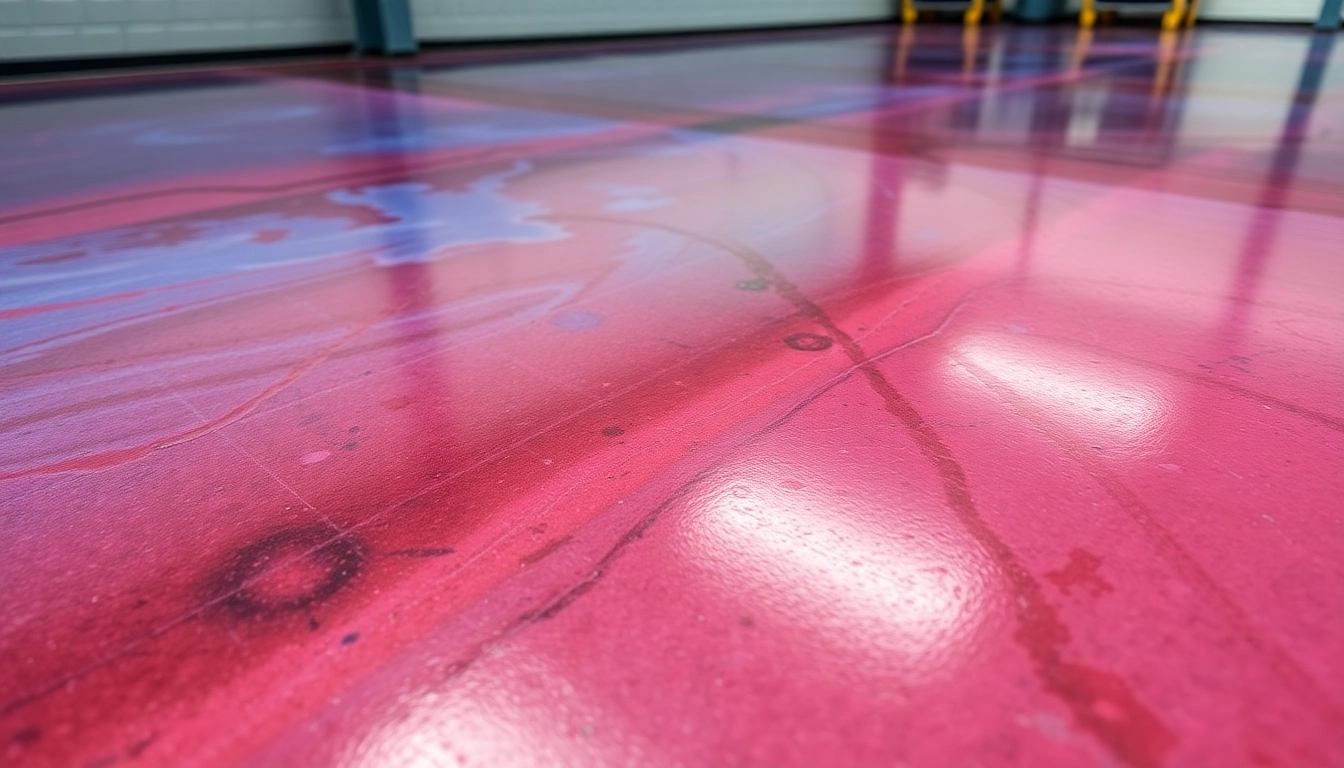
Introduction to Epoxy Resin Flooring in Birmingham
Epoxy resin flooring has become an increasingly popular choice for businesses and homeowners across Birmingham due to its durability, aesthetic appeal, and cost-effectiveness. Whether you’re upgrading a garage, warehouse, retail space, or residential area, the demand for high-quality epoxy flooring solutions is on the rise. Finding the right epoxy resin flooring contractors Birmingham is crucial to ensuring a smooth installation process and a flawless finish that will last for years to come.
What Are Epoxy Floors and Why Choose Them
Epoxy floors consist of a resin and hardener mixture applied over concrete surfaces. Once cured, they form a robust, chemical-resistant, and seamless surface that can withstand heavy foot traffic, chemical spills, and daily wear and tear. Their versatility allows for customization in color, texture, and design, making them suitable for various environments—from commercial warehouses to stylish retail outlets and elegant residential basements.
Benefits of Hiring Licensed Birmingham Epoxy Flooring Contractors
Engaging licensed professionals ensures that your epoxy flooring project benefits from expertise, quality assurance, and compliance with safety standards. Experienced contractors understand surface preparation intricacies, correct application techniques, and curing protocols, which directly impact durability and finish quality. Moreover, licensed providers often offer warranties, after-sales support, and warranty services that safeguard your investment.
Common Applications in Commercial, Residential, and Industrial Settings
Epoxy flooring’s adaptability makes it suitable for a wide range of applications:
- Commercial spaces: Retail outlets, showrooms, and offices benefit from attractive, slip-resistant surfaces that are easy to maintain.
- Residential environments: Garages, basements, and outdoor patios gain enhanced durability and aesthetic appeal.
- Industrial facilities: Warehouses, factories, and manufacturing plants rely on epoxy’s chemical resistance, load-bearing capacity, and safety features.
Key Factors in Selecting the Right Epoxy Resin Flooring Contractor Birmingham
Experience and Certification in Epoxy Flooring Projects
Experience is a primary consideration when choosing an epoxy flooring contractor. Companies with a proven track record and certifications, such as membership in professional trade associations, demonstrate their commitment to quality and continuous improvement. An experienced contractor will conduct thorough site assessments, advise on suitable epoxy formulations, and anticipate challenges before they arise.
Portfolio and Client Testimonials
Reviewing a contractor’s portfolio provides tangible insights into their skill level, style, and versatility. Additionally, client testimonials offer honest feedback regarding project execution, adherence to timelines, and post-installation support. Leading contractors often showcase before-and-after photos and case studies to exemplify their expertise.
Pricing, Guarantees, and Material Quality
While cost is important, it should not compromise quality. Reliable contractors offer transparent pricing, detailed quotations, and guarantee their work. They utilize high-grade epoxy materials from reputable suppliers, which ensures longevity, aesthetic consistency, and resistance to weather or chemical exposure.
Step-by-Step Process of Installing Epoxy Resin Floors
Site Assessment and Surface Preparation
The installation process begins with comprehensive site evaluation. Proper surface preparation is critical: concrete surfaces must be clean, dry, and free of contaminants like oil or debris. Repairs to cracks or uneven areas are performed to achieve a smooth, level base, which enhances adhesion and ensures an even finish.
Application Techniques and Materials Used
Epoxy application involves multiple layers. First, a primer or base coat is applied, followed by additional coats for color, texture, or anti-slip properties. Skilled contractors employ tools such as rollers, squeegees, or spray equipment for uniform layering. They also incorporate additives or texture materials for slip resistance or aesthetic effects as desired.
Finishing, Curing, and Maintenance Tips
After application, curing typically takes 24-72 hours, depending on environmental conditions. Proper curing is vital for maximum durability. Contractors may apply sealants or topcoats to enhance appearance and resistance. Post-installation, routine cleaning with gentle detergents and timely repairs for chips or cracks prolong the lifespan of the epoxy floor.
Tips for Maintaining Your Epoxy Floors in Birmingham
Regular Cleaning and Inspection Practices
Maintaining epoxy floors involves regular sweeping and mopping with non-abrasive cleaners. Inspect for signs of damage such as cracks or chips and address issues promptly to prevent further deterioration.
Repairing Minor Damages and Chips
Minor damages can often be repaired using epoxy patch kits. For deeper or widespread issues, consulting a professional ensures proper adhesion and finish restoration.
Long-term Care to Maximize Durability
Use mats in high-traffic areas, avoid harsh chemicals, and perform periodic resealing or recoating as recommended by your installer. Proper maintenance extends the lifespan and preserves the appearance of your epoxy flooring for decades.
Performance Metrics and ROI of Epoxy Resin Flooring
Cost-effectiveness and Longevity
Investing in epoxy flooring yields significant return, thanks to its durability and minimal maintenance requirements. High-quality epoxy floors can last 10-20 years, making them a cost-effective solution relative to their lifespan.
Impact on Property Value and Safety
Well-installed epoxy floors enhance property aesthetics and safety, reducing slip hazards and improving cleanliness standards. Such features often increase property value and appeal to tenants or buyers.
Environmental Benefits and Sustainability Considerations
Many modern epoxy formulations are environmentally friendly, featuring low VOC emissions and recyclable materials. Additionally, their durability reduces the need for frequent replacements, supporting sustainability objectives.







